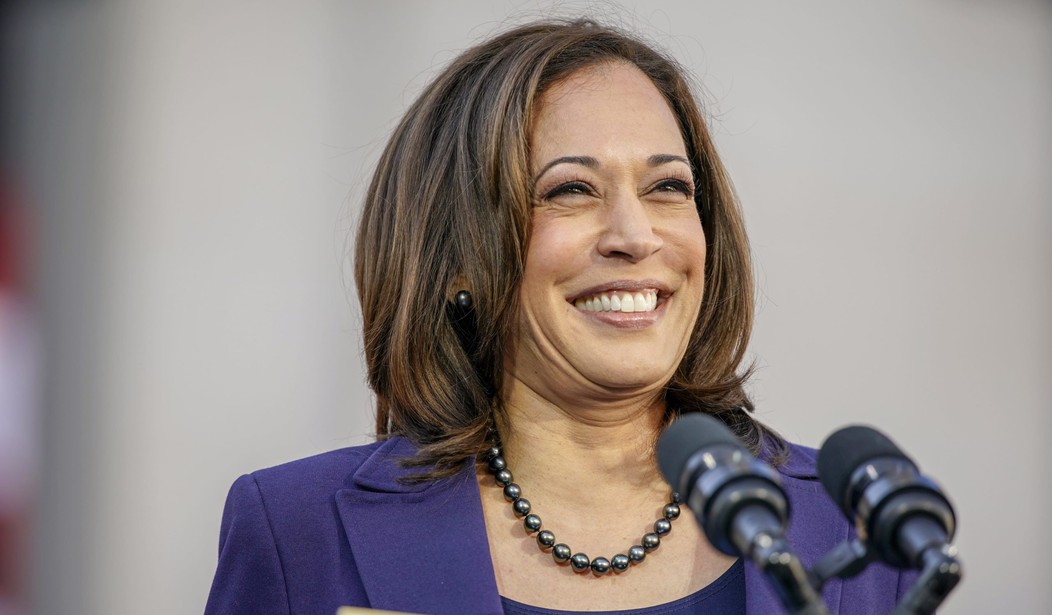Sen Kamala Harris (D-Calif) is on the record as backing “some form of reparations” for slavery. In a recent interview, Harris agreed with the host’s suggestion that government reparations for black Americans were necessary to address past discrimination. The 2020 presidential hopeful later “affirmed that support” in a statement to The New York Times.
“We have to be honest that people in this country do not start from the same place or have access to the same opportunities,” she said in an interview with “The Breakfast Club.”
Well look, I think that we have got to address that again, it’s back to the inequities. There, through–look, America has a history of 200 years of slavery. We had Jim Crow. We had legal segregation in America for a very long time. The Voting Rights Act was only strong for 50 years and then they wiped it out with this United States Supreme Court in the Shelby decision, to the point that 22 states immediately thereafter put in place laws that one court found were crafted with surgical precision to have black people not be able to vote.
So we’ve got to recognize, back to that earlier point, people aren’t starting out on the same base, in terms of their ability to succeed and so we have got to recognize that and give people a lift up. And, there are a number of ways to do it. Part of my initiative again around the “Lift Act” is that same point–you lifting people up who are making less than a hundred thousand dollars a year. What I want to do about rent is the same thing. What we need to do around education and understanding disparities, what we need to do around HBCUs. But we have a history of racism in America.
Harris doesn’t owe anyone in America, but does she have some mea culpas to make in Jamaica? Her father, Donald J. Harris, wrote an extensive essay about the family’s heritage in Jamaica at Jamaican Global Online in January, claiming to be the descendant of a famed slave owner.
My roots go back, within my lifetime, to my paternal grandmother Miss Chrishy (née Christiana Brown, descendant of Hamilton Brown who is on record as plantation and slave owner and founder of Brown’s Town) and to my maternal grandmother Miss Iris (née Iris Finegan, farmer and educator, from Aenon Town and Inverness, ancestry unknown to me). The Harris name comes from my paternal grandfather Joseph Alexander Harris, land-owner and agricultural “produce” exporter (mostly pimento or all-spice), who died in 1939 one year after I was born and is buried in the church yard of the magnificent Anglican Church which Hamilton Brown built in Brown’s Town (and where, as a child, I learned the catechism, was baptized and confirmed, and served as an acolyte).
Hamilton Brown was born in 1776 in Ireland. He became a sugar plantation owner and founder of Brown’s Town in Jamaica, according to university papers, textbooks, and historical documents. Henry Whiteley wrote a pamphlet entitled “Three months in Jamaica in 1832, Comprising a Residence on a Sugar Plantation,” where he describes Brown’s views on his slaves:
The same day I dined at St. Ann’s Bay, on board the vessel I arrived in, in the company with several colonists, among whom was Mr. Hamilton Brown, representative for the parish of St. Ann in the Colonial Assembly… I was rather startled to hear that gentleman swear by his Maker that that Order should never be adopted in Jamaica; nor would the planters of Jamaica, he said, permit the interference of the Home Government with their slaves in any shape. A great deal was said by him and others present about the happiness and comfort enjoyed by the slaves, and the many advantages possessed by them of which the poor in England were destitute. Among other circumstances mentioned in proof of this, Mr. Robinson, a wharfinger, stated that a slave in that town had sent out printed cards to invite a part of his negro acquaintance to a supper party. One of these cards was handed to Mr. Hamilton Brown, who said he would present it to the Governor, as a proof of the comfortable condition of the slave population.
But later that day, after he witnessed slaves being punished by Brown’s overseer, Whiteley wrote:
The first was a man of about thirty-five years of age. He was what is called a pen-keeper or cattle herd; and his offence was having suffered a mule to go astray. At the command of the overseer he proceeded to strip off part of his clothes, and laid himself flat on his belly, his back and buttocks being uncovered. One of the drivers then commenced flogging him with the cart whip. This whip is about ten feet long, with a short stout handle, and is an instrument of terrible power. It is whirled by the operator round his head, and then brought down with a rapid motion of the arm upon the recumbent victim, causing the blood to spring at every stroke. When I saw this spectacle now for the first time exhibited before my own eyes, with all its revolting accompaniments, and saw the degraded and mangled victim writhing and groaning under the infliction, I felt horror-struck. I trembled and turned sick; but being determined to see the whole to an end, I kept my station at the window. The sufferer, writhing like a wounded worm, every time the lash cut across his body, cried out, “Lord! Lord! Lord!” When he had received about twenty lashes, the driver stopped to pull up the poor man’s shirt (or rather smock frock), which had worked down upon his galled posteriors. The sufferer then cried, “Think me no man? Think me no man?” By that exclamation I understood him to say, “Think you I have not the feelings of a man?” The flogging was instantly recommenced and continued; the negro continuing to cry “Lord! Lord! Lord!” till thirty-nine lashes had been inflicted. When the man rose up from the ground, I perceived the blood oozing out from the lacerated and [illegible] parts where he had been flogged; and he appeared greatly exhausted. But he was instantly ordered off to his usual occupation.
Whiteley’s account goes on, describing one victim after the next, including women and young boys. It is truly sickening to read. Brown didn’t stop after the Jamaican slaves were freed. He attempted to make the Irish work on his plantation but failed when he was accused of trying to enslave more people. The historical accounts are so detailed that should Kamala Harris want to search out the families of the people her relative reportedly tortured, she would probably be able to find them.
Will she write a check to repair the damage her ancestor Hamilton Brown did to the slaves in Jamaica? Perhaps the media can do its job and ask her. Don Lemon might, as he seems concerned about her authentic blackness.
https://youtu.be/RUpwo3bjZg8
He may have a point. Not only is she not “African-American,” but she appears to be descended from violent slave owners.
It is possible Kamala Harris’ lineage came from Brown spreading his seed among his slaves through force, however, Donald Harris’ account is that Christiana Brown, his grandmother, carried the same name as Hamilton Brown and owned a general store in town while her sons worked the family farmland at Orange Hill. If they did descend from slaves, it appears they ended up owning and profiting from the land and business and family name. By the left’s standards, that would make Harris culpable for the suffering of the slaves who worked that plantation under Brown.
It’s a ridiculous supposition, of course, to hold anyone responsible for the actions of distant relatives hundreds of years ago. If we travel far enough back, most of us are likely related to slave owners at some point in history since selling people into slavery has always been a part of the human story across the globe. But since Harris has decided to embrace reparation theology, shouldn’t she lead by example?
If we had a curious or intellectually honest press, they would be lined up outside her door to find out if she’s going to send reparations checks to the descendants of her family’s slaves.
PJM reached out to Harris’ press office and Donald J. Harris for comment and received no response.










Join the conversation as a VIP Member